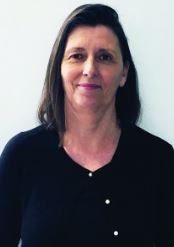Education in palliative care is about preparation
A blog post written by Dr Katrina Erny-Albrecht, Senior Research Fellow, CareSearch, Flinders University
Learning to swim by jumping from the high diving board. That’s how some have described their introduction to palliative care. Unprepared and anxiously wondering what to do but with little or no guidance, and no sense of control or insight into what might happen when they hit the water. This could easily apply to the person needing palliative care, their family and carers. It could also apply to the health or care professional either without specific training or faced with unfamiliar palliative care needs.
In part we arrive at this situation because training in health care and the health focus of society in general emphasise diagnosis and treatment leading to cure. Palliative care is when cure becomes unlikely, but there is still much that can be done. It is an active shift in emphasis to quality of life and support to live the best life possible until the end. A shift that requires a different approach to training and understanding.
So how can we better prepare ourselves and those we care for when care turns to palliative care? How do we ensure that the information and care we provide is the best available and not just what we have always said and done? There will be varied individual approaches, and in truth for many it will include ‘Dr Google’. But quality education should also be high on our lists whatever our role in palliative care.
Education seeks to reliably inform us of what is possible and how it might make a difference, to prepare and train us to take an active role. It can take many forms from face-to-face course attendance to online learning, from a 30-minute online session in the comfort of your own home to formal qualification provided through a university or college. Tailored to targeted audiences or aimed at more general education, the purpose in the palliative care context is to develop capacity to understand and support care needs. As demand for palliative care services increases, due in part to influences including population ageing and increasing prevalence of life-limiting chronic conditions, so too have opportunities to gain relevant education. Learning styles differ between people, preferences are individual and contextual. A single course or program is unlikely to meet all needs and learning styles. Knowing where to find courses and which ones are appropriate for your needs can be difficult.
CareSearch supports access to education in palliative care for all Australians by providing a single point of entry to connect with a broad range of courses. For health professionals there are details on a variety of opportunities including eLearning, formal qualifications, workshops and conferences. All good ways to either introduce yourself to palliative care or to upskill to improve care capacity. Choosing the right learning experience is facilitated through application of descriptive criteria including age group, care needs and symptoms, and individual roles. There is also a section specific to educational opportunities for careworkers, volunteers and carers. Providing information and access to eLearning, workshops, courses, and community-based learning opportunities, this section also lists resources for those that provide training to these key groups of the Australian palliative care community. CareSearch has done the work so that individuals can choose the course that best meets their needs at the time. Continuously appraising new courses to extend the collection and provide new opportunities for everyone to make palliative care their business.
With funding from the Australian Government, access to education is just one of the ways we actively support all Australians with palliative care. It may still feel like jumping from the diving board, but hopefully armed with the knowledge of how to swim or at least aware of the options to stay afloat people will be better prepared and able to influence the experience.

Dr Katrina Erny-Albrecht, Senior Research Fellow, CareSearch, Flinders University